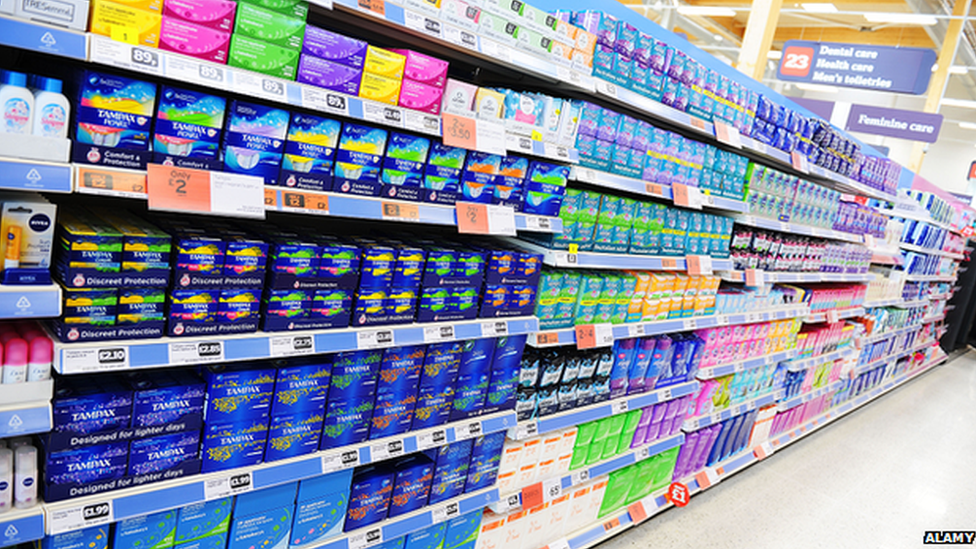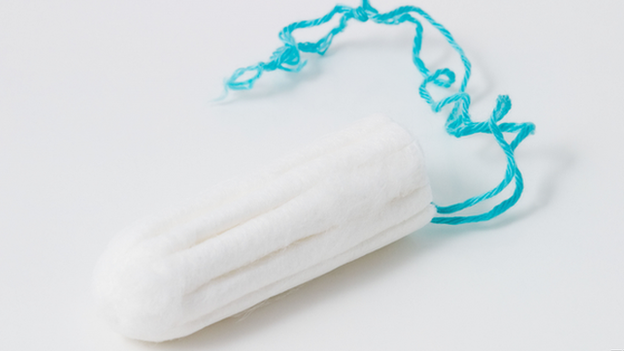'Tampon tax' proceeds to go to women's charities
- Published
Tampon tax 'to fund women's charities'
The £15m raised each year from charging VAT on tampons will be used to fund women's health and support charities, the chancellor has announced.
George Osborne said European law meant the tax could not be axed, but insisted the government was committed to getting the EU rules changed.
Currently VAT is charged at 5% on sanitary items, the lowest rate allowable under EU law.
The move comes after 300,000 people signed a petition against the tax.
"We already charge the lowest 5% rate allowable under European law and we're committed to getting the EU rules changed," said Mr Osborne.
He said the way the government would use the money from VAT would be "similar to the way" that it gives the proceeds of bank fines connected to the manipulation of the global benchmark London inter-bank lending rate to charity.
However, the comparison came in for criticism.
"Comparing #tampontax to #libor implies we have control over our biology," tweeted the North London branch of the Fawcett Society, a charity for women's equality and rights.
Mr Osborne said the first £5m would be distributed between cancer charities Eve Appeal and The Haven and domestic abuse charities SafeLives and Women's Aid. He invited bids from "other such good causes" for the rest of the funds.
'Tax on women'
Mr Osborne's move comes just a month after MPs narrowly rejected a Finance Bill amendment which would have forced an EU negotiation on the VAT rate charged on sanitary items.
At the time, David Gauke, the financial secretary to the Treasury, said due to the "considerable cross-party support", he planned to raise the issue with the European Commission, but warned that axing the rate would require a European Commission proposal and the unanimous agreement of all 28 member states.
Paula Sherriff, the Labour MP behind the Finance Bill amendment, said the charge was "unfair".
She said VAT was "a tax on women, pure and simple. Periods are a fact of life and it's not like women have a choice".
Labour cut the rate when it was in government from the then standard rate of 17.5% - imposed in the 1970s - to the lower rate of 5%, but was prevented from going any lower by the European rules.

Autumn Statement and Spending Review 2015

Presented by Chancellor George Osborne, the Spending Review sets out what government spending will be over the next four years, while the Autumn Statement is an annual update of government plans for the economy.
Explained: Which government departments will be affected?
Analysis: From BBC political editor Laura Kuenssberg
Special report: Full in-depth coverage of the Spending Review and Autumn Statement
Watch: The BBC's TV coverage begins on BBC Two and the BBC News Channel at 11:30 GMT, with BBC Radio 5 Live coverage from 11:55 GMT

- Published26 October 2015

- Published21 August 2015
